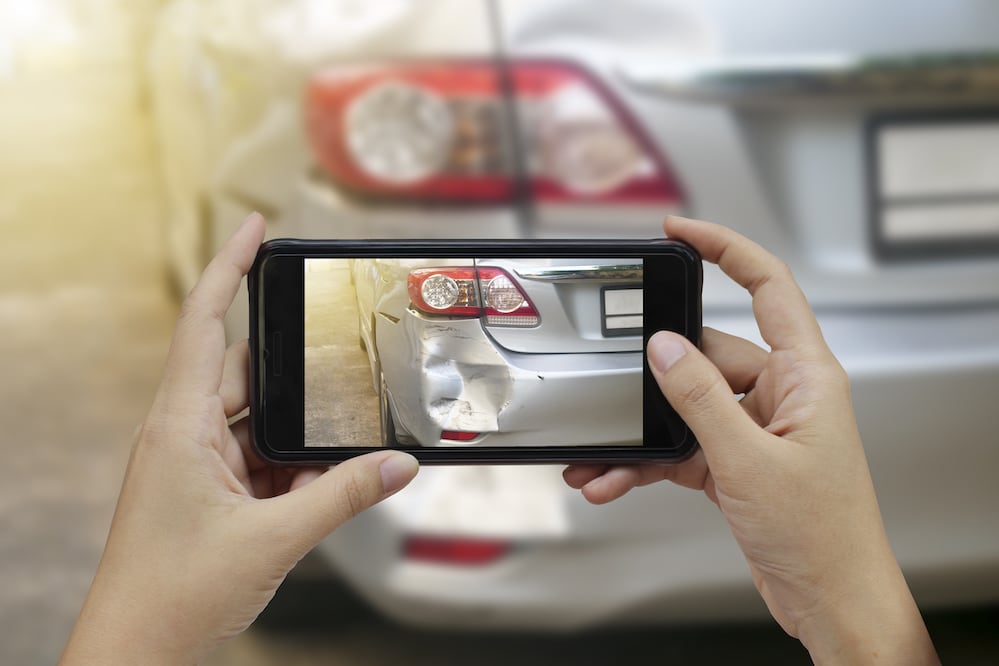
10 Steps to Take After a Car Accident
When an accident occurs, it can leave you feeling confused and agitated, but this is just the time to try to stay rational. There’s much to be done immediately following the accident and into the coming weeks. Even the smallest mistake or misjudgment can sabotage your ability to claim compensation, or damages, for the losses caused by the accident. For that reason, it’s important to know how to react after an accident and how to protect your rights.
1 Assess the Scene
The first thing you should do is determine how badly you’re injured. If you can move freely, check on the condition of others involved in the accident. This includes the other drivers and any passengers in the vehicles. Additionally, try to locate the nearest major intersection. This will help you give the emergency dispatcher accurate information when you place a call to 9-1-1 for emergency services.
2 Gather Contact Information
After you call for help, you may be waiting a while for the police and rescue workers to arrive. This will be the best time to gather the names, contact information and insurance information from the other drivers involved in the accident. You should also gather the names and contact information for vehicle passengers and any witnesses to the accident. You may need to contact these people later as you pursue your claim.
3 Document the Scene
The next step you should follow as you react to the accident is to document the scene of the accident. Now that we have high-quality cameras built into our phones, this is much easier to do, and it’s something anyone can do at the scene. Taking pictures of the scene of the accident will help your auto injury lawyer prepare your case if it becomes necessary to go to trial. Be sure to take close-up photos of vehicle damages caused by the accident, as well as pictures of damages to surrounding property. It may also be helpful to take pictures of the license plates of the vehicles involved in the accident since you will need that information to file any insurance claims.
4 Make a Statement to the Police
When the police arrive to investigate the accident, they will have questions about how it occurred. In some cases, they may only take a statement from one party involved in the accident and let that stand as the official account. If this happens, it’s important that you insist on making a statement of your own and that it be included in the report. This ensures your version of the accident will also be included. It’s also important to request a copy of the police report. Having a copy on hand will help you file your insurance claim and may help any car injury law firms evaluate your case.
5 Get a Medical Evaluation
Once the police have wrapped up their investigation, you’ll be able to leave the scene. This is the best time to get a medical evaluation. It establishes that you’re concerned for your medical condition and that you take your injuries seriously. This will help you with any personal injury claims you intend to make. Additionally, it will ensure any serious medical conditions are diagnosed on time. Some conditions, including the head, neck, and back injuries, may not manifest symptoms until they become more severe. Early diagnosis improves the chances of successful treatment.
6 Gather Evidence
As soon as you’re able, you should begin gathering more evidence to support your claim. This means collecting copies of your medical records and bills, repair estimates for your vehicle, and proof of your missed hours of work. All of this documentation can be used to establish the financial burden the accident has caused you to suffer.
7 Hire an Attorney
This is the time to start browsing car injury law firms for representation. The insurance company will be pressuring you to accept a low cash settlement, but your attorney can take over negotiations. Hiring a car accident personal injury lawyer early in the process will ensure you’ll have someone to negotiate a fairer settlement and, if negotiations fail, he’ll be ready to represent you in court. Your attorney will ensure your rights are protected and improve your chances of a favorable outcome in your case.
8 Take a Break from Social Media
Throughout this time, it’s important to stay off of your social media accounts. If possible, it may be prudent to disable them temporarily. This will keep insurance agents and attorneys from using your posts, comments, or photos against you in court.
9 Don’t Discuss Your Case
You should also keep from discussing your accident or your claim with anyone. You never know which family members, friends, or co-workers may be untrustworthy. Even if they’re not reporting what you say directly to the opposing party, they may be spreading gossip that will get back to the insurance company’s investigators. It’s much safer to keep from discussing the incident at all until after a settlement has been reached.
10 Follow Your Attorney’s Advice
Finally, be sure to follow all of your lawyer’s advice, even if some of it seems especially restrictive. Remember, your attorney is experienced in handling these types of cases, and he knows what will harm or help your situation. For instance, if he tells you never to discuss your case outside of the office, he has a good reason for stressing that point. A stranger may seem genuinely concerned for you to get you to talk about the details of the accident but may end up being an investigator or attorney working for the other party. By declining to discuss the incident at all, you’ll be protecting your own interests.
If you follow each one of these steps, you’ll be helping yourself to obtain a fair settlement or award. Working together, you and your car accident personal injury lawyer can get the money you need to recover from the accident more fully. As long as you follow these steps and the advice of your auto injury lawyer, you should receive the money you need to recover and return to your ordinary life that much more quickly.



























